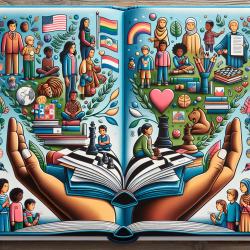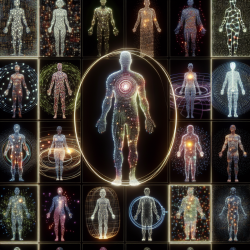Introduction
The COVID-19 pandemic posed unprecedented challenges, especially for youth development programs that traditionally relied on in-person interactions. The study "Virtual Sport-Based Positive Youth Development During the COVID-19 Pandemic" sheds light on how virtual adaptations can still foster essential life skills and positive outcomes for children. As practitioners, understanding and implementing these findings can enhance our approaches and outcomes in virtual settings.
Key Findings from the Study
The study focused on the Los Angeles Football Club Youth Leadership Program (LAFC YLP), which transitioned to virtual sport-based activities during the pandemic. Here's what they found:
- Accessibility: The virtual program was accessible to 53 youth and their families, indicating a successful reach even in socially vulnerable communities.
- Engagement: Participants found the activities enjoyable and challenging, with an average engagement of three videos over three months.
- Life Skills: The program facilitated the transfer of life skills, such as following directions and building community relationships, beyond the sport context.
Implications for Practitioners
Practitioners can leverage these insights to enhance their virtual programs:
- Design Engaging Content: Ensure activities are both enjoyable and challenging to maintain engagement.
- Focus on Life Skills: Integrate life skill development into virtual activities, emphasizing skills like teamwork, accountability, and community building.
- Utilize Accessible Platforms: Choose platforms that are easy to access and use, ensuring inclusivity for all participants.
Encouraging Further Research
While this study provides valuable insights, further research is essential to refine virtual sport-based PYD programs. Practitioners are encouraged to explore:
- The long-term impact of virtual PYD programs on youth development.
- Strategies to enhance engagement and skill transfer in virtual settings.
- Ways to incorporate cultural and community-specific elements into virtual programs.
Conclusion
The transition to virtual sport-based PYD activities during the COVID-19 pandemic has shown promising results in maintaining engagement and facilitating life skill development. By adopting data-driven strategies and continuing research, practitioners can effectively support youth development in virtual environments.
To read the original research paper, please follow this link: Virtual Sport-Based Positive Youth Development During the COVID-19 Pandemic.










